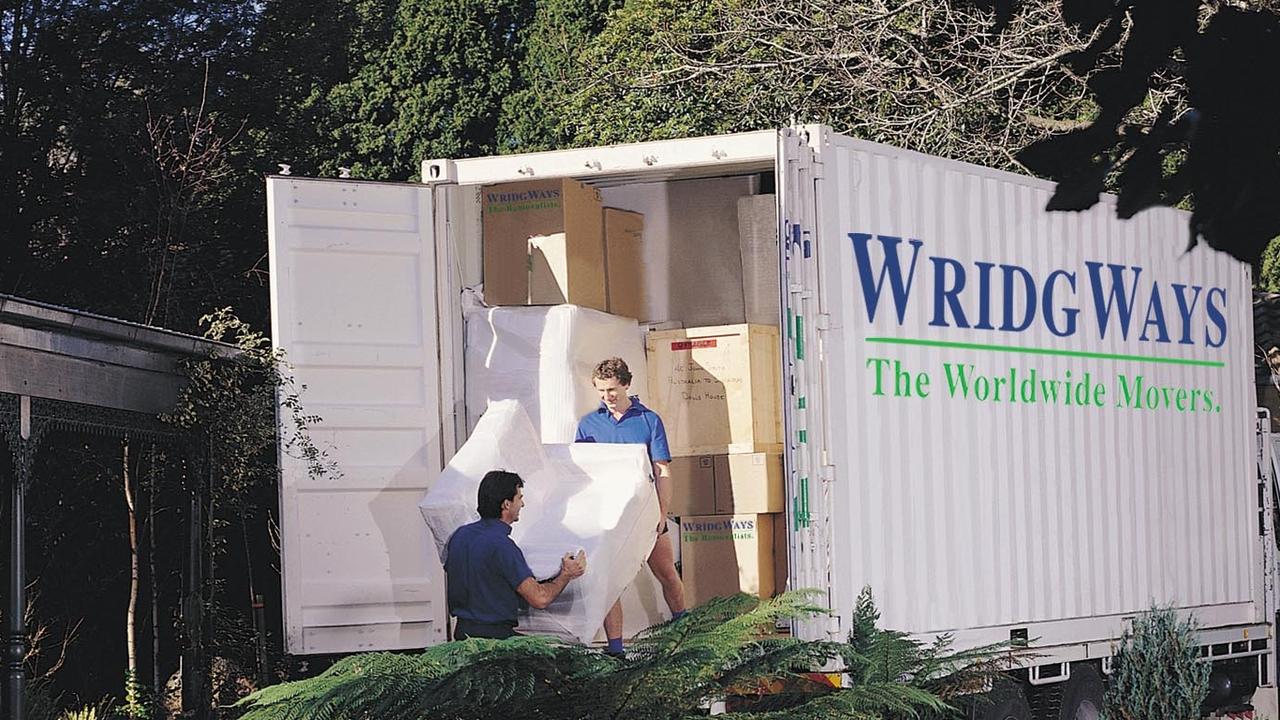Tasmania’s forest wars could reignite amid rising political tensions
Tasmania’s forestry debate has kicked back into gear after years of relative peace. But given a moratorium over logging 365,000ha of state forest has now lapsed, is either side “spoiling for a fight”?
News
Don't miss out on the headlines from News. Followed categories will be added to My News.
“HORSESHIT” is threatening to end the years of relative peace and calm that has blanketed Tasmania’s forest wars after three decades of conflict.
But whose horseshit is it?
Ire is emerging once more from rubble that seemingly lay dormant after the dramatic decline of old-growth logger Gunns Ltd and its ill-fated pulp mill bid, and the ceasefire brought by a long moratorium over logging in some 365,000ha of state forest.
But compassion-fatigued Tasmanians may again need to pick a side in the age-old forestry debate, given that moratorium recently lapsed – as of April 8 this year.
Combined with rising polemic political issues – including a landmark Federal Court decision last week that could impact Tasmania and a State Government trying to pass controversial anti-protest laws – it’s expected the forest wars won’t just be heating up again in 2020, but could in fact become downright ugly.
WHAT THE LOGGERS SAY
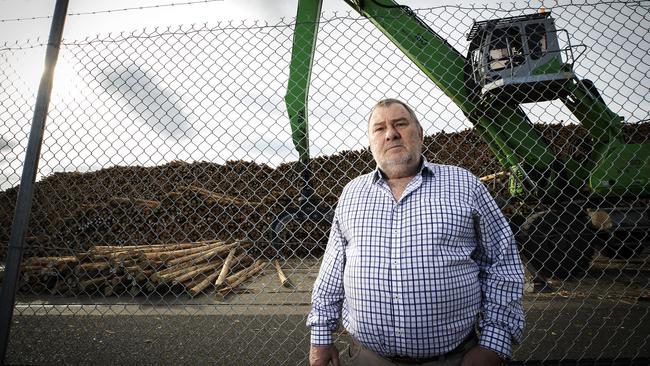
The state-owned Sustainable Timber Tasmania (STT) says it logged 5984ha of native forest on public land in 2018-2019 – a notable drop from the 12,400ha felled in 2005-2006 or the 11,200ha in 1999-2000.
STT also says one million ha of old-growth forest is now protected across the state, and it’s promised to only dip into it selectively for “high-quality sawlogs and special timbers”.
The organisation says clear-felling is the best and safest way to log eucalypt – but promises it has stopped the practice at coupes containing more than 25 per cent old growth.
It’s also dropped the use of 1080 poison and says it won’t touch the Styx Valley’s giant trees or the Tarkine’s deep red myrtle.
Long-serving Tasmanian Forest Industry Association chief Terry Edwards says the industry has made huge strides in sustainability dating back to a philosophical shift led by Premier Jim Bacon.
He also says Tasmania’s forests will be vital for the state’s economic recovery post-COVID-19.
“Why wouldn’t you use wood as a sustainable part of rebuilding Tasmania? It was certainly part of the original building of Tasmania,” Mr Edwards said.
“It’s beyond doubt that we don’t have sufficient housing – ask the people sleeping on the streets.”
Primary Industries Minister Guy Barnett jumped at the chance this week to announce native Tasmanian forests will be a key part of the Premier’s $1.8 billion infrastructure package, announced Thursday.
Mr Barnett emphasised he wasn’t talking about plantation wood, but “top-grade”, “appearance-grade timber” – sourced from the state’s native eucalypt forests – attractive enough to be used for flooring, stair treads and in architecture.
VICTIMS OF PROPAGANDA
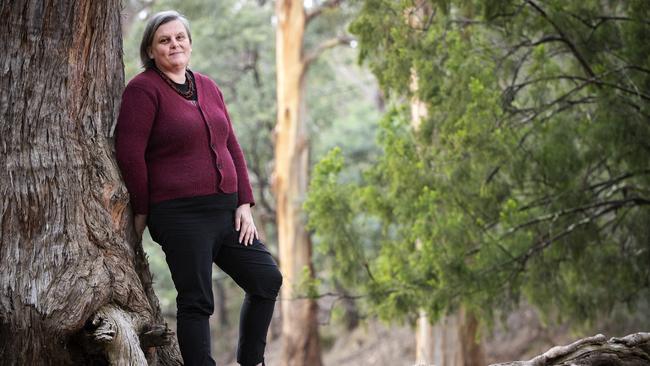
Bob Brown Foundation campaign manager Jenny Weber says one of the biggest problems environmentalists face in 2020 isn’t just a war in the forests, but a war of public relations.
She says the State Government has created a false appearance of responsibility, and while it was true that far less native forest was logged now compared to 10 or 20 years ago, the controversial practices of destroying native animal habitat, clear-felling and selling high-value forests for woodchip continued.
“I think that the propaganda has won out, so it’s up to us as conservationists and environmentalists to bring clear light to what’s going on,” she said.
“We still come face-to-face with people who think the forests in Tasmania are safe.
“Logging of the forest is ongoing. Clear-felling has been continuing, and the extinction of species has been continuing.”
Ms Weber said although the days of forestry giant Gunns Ltd were over, companies like Ta Ann had taken over.
“Tasmania is lagging behind the rest of the nation is the transition to plantation forests,” she said.
“We’re also lagging behind the nation in terms of returns. It’s still costing the taxpayer money, which I think a lot of people don’t know, and it’s still happening on a massive scale.”
Ms Weber also said protesters themselves were losers of the PR wars, and that the Bob Brown Foundation has taken years to rebuild its community after years of becoming “downtrodden”.
“The protests did stall because the protesters have been vilified. We’ve had an enormous PR exercise against us,” she said.
But she said February and March this year represented “a huge season of protests” with 20 activists arrested for trespass, and that could increase now the moratorium had ended.
MORE THAN YOU GET FOR MURDER
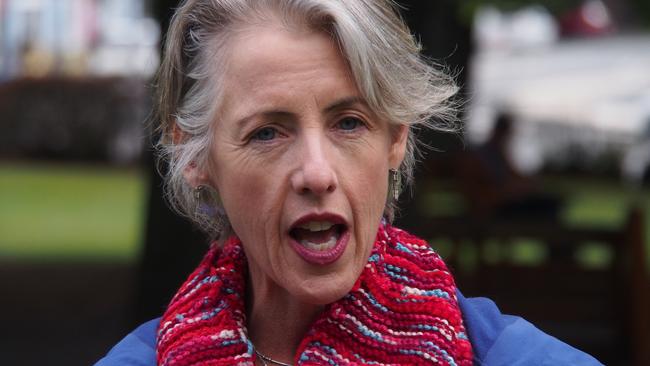
An impassioned Greens MP Rosalie Woodruff was forced to withdraw the word “horseshit” in Parliament last November as she criticised the Liberal government’s planned anti-protest laws.
Promised to be the strongest of their kind in the country with fines up to $10,000 and jail terms of up to 18 months for a first offence, up to four years for a second offence – and potentially up to 21 years behind bars – they’ve been knocked back in the past by the High Court for breaching freedom of political communication.
“That is more than you get for murder in this state. Just think about it. More than you get for murder,” Dr Woodruff said, noting plenty of laws already existed to maintain the rights of businesses – such as trespass laws.
“People will rise up against this bill and the High Court will have another challenge before it.”
But Mr Edwards said the new legislation had been drafted to comply with the High Court ruling, and the government was confident its revised anti-protest laws would survive a further challenge.
“The existing laws are inadequate,” he said, noting protesters usually walked away with a $200 fine for trespass.
“The courts are very, very soft in handing down penalties …(while) contractors are going broke because people are handcuffing themselves to machinery in their coupes.”
Both sides of the debate have denied responsibility for the recent tree-spiking incident in the Derwent Valley.
SPOILING FOR A FIGHT
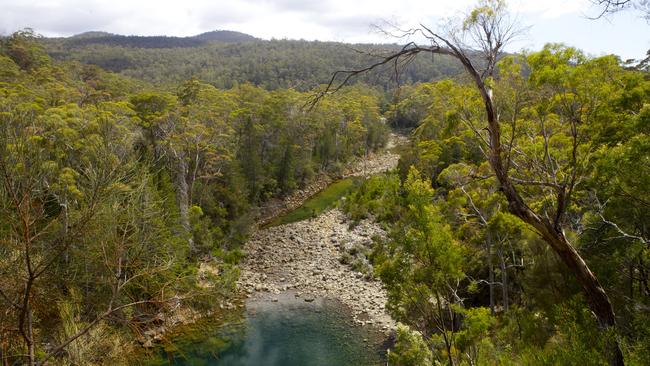
The 365,000ha Future Potential Production Forest “woodbank” described by Mr Barnett now potentially open for logging includes a vast a range of forest coupes spread across the state – including on the Tasman Peninsula, near the Douglas-Apsley National Park and the Wielangta forest, in the Tarkine, the Blue Tier and on Bruny Island, and surrounding the Ben Lomond National Park.
But private companies, outsourced by STT, will need to apply to log these areas and gain approval given by both houses of Parliament.
Given that, does the end of the moratorium period mean the forest wars could reignite?
“Certainly it’s clear from public statements by Cassy O’Connor, The Wilderness Society and the Bob Brown Foundation that they are spoiling for some kind of fight,” Mr Edwards said.
“Why does there need to be a fight? D-Day has come and gone. There is still no application before government that I know of.
“The world hasn’t come to an end. These forests haven’t been ravaged and destroyed. Nothing can be further from the truth.”
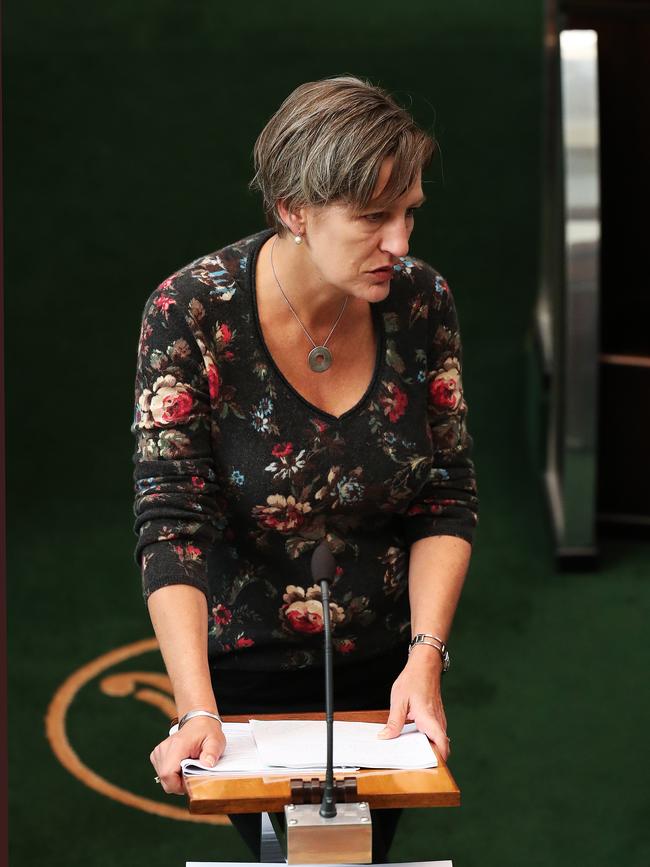
But Ms O’Connor said she doubted things were about to get nasty.
“I have a feeling that (Mr) Gutwein’s wary of going into those forests,” she said.
“It would be a highly inflammatory move.
“(And) they don’t need to – the plantations already take enough.”
Ms O’Connor said Mr Gutwein was unlikely to make any “sudden moves”.
“He’s given himself the Climate Change portfolio, and he’s demonstrated himself as a person who’s willing to listen to medical science on COVID – and the science on climate and bushfires is very solid,” she said.
She said because of the moratorium in recent years, “some of the heat has gone out of the debate”.
“But the history of this place is if the industry tries to go in to the 365,000ha, they’re going to have a dust-up on their hands.”
POSSUMS AND POLITICS
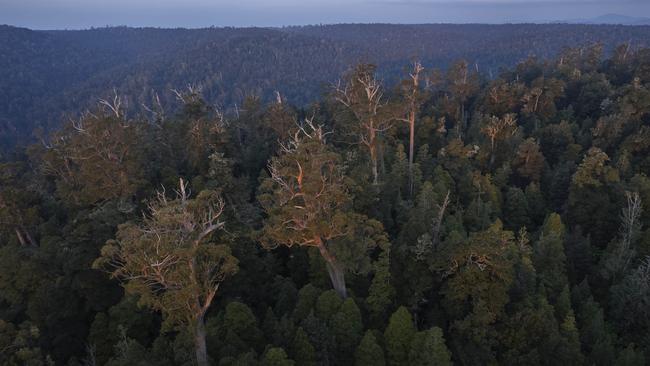
Both sides of the Tasmanian forest debate are currently trawling through hundreds of pages of a Federal Court decision that was handed down last week, and for good reason.
The court ruled that VicForests, owned by the Victorian state government, breached environmental laws by logging habitats of threatened species – the Leadbeater’s possum and the greater glider.
The ruling could have huge implications in Tasmania and its threatened species such as the wedge-tailed eagle and the swift parrot because it ruled regional forest agreements were subject to – not exempt from – federal environmental protection laws.
Mr Edwards said Tasmania’s forestry industry led the world in protecting threatened species, adding the swift parrot was primarily threatened by the introduced sugar glider rather than logging.
“What we’re doing is an analysis of the decision,” he said.
“Then we’ve got to compare and evaluate what happened in the Victorian court case with Tasmania.”
Ms Weber said the Bob Brown Foundation was doing the same, adding threatened Tasmanian species were “still in major trouble” with continued clear-felling of “large swathes of forest”.
“We will challenge the Tasmanian Regional Forest Agreement – we’re just seeking legal advice.”


